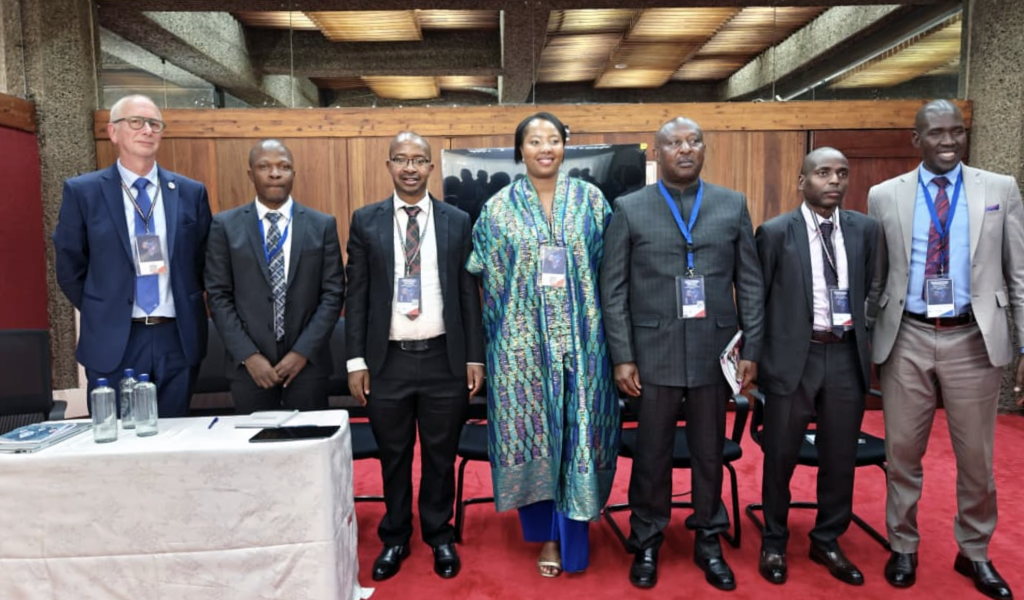News
From Standards to Savings: Quality Infrastructure and Energy Efficiency at IEC Africa Week

The first IEC Africa Quality Infrastructure in Electrotechnology Week (IAQIEWW) took place from 4 to 6 November 2025, bringing together key stakeholders under the theme “A decade of progress with International Electrotechnical Commission in Africa: Honoring the past and innovating for a sustainable future.” The event focused on how strong Quality Infrastructure (QI) systems can accelerate sustainable industrial development, trade, and energy access across the continent.
Energy efficiency is a key outcome of a well-functioning QI. QI underpins the entire system of energy efficiency by providing the standards, testing, and labelling mechanisms that ensure products meet established performance requirements. Minimum Energy Performance Standards (MEPS) are a direct application of QI principles: they rely on standardized testing methods, accredited laboratories, and certification systems to verify product compliance. Through metrology, certification, and conformity assessment, QI makes these standards credible, comparable across markets, and enforceable. Without a strong QI, MEPS and labelling schemes cannot be effectively implemented, limiting progress toward reducing energy waste, lowering costs, and meeting climate and development goals.
During the conference, David Mutisya, Technical Advisor at UNIDO, and Denis Ariho, Lead Technical Expert at EACREEE and member of the EELA team, discussed how MEPS and labelling contribute to advancing energy efficiency. “Standards and labellings are among the most powerful tools we have. They empower consumers and small businesses to make informed choices, understanding not just the purchase price, but lifetime energy savings. In sectors like agro-processing and cold storage, small enterprises that have adopted efficient motors or refrigeration systems have achieved energy savings up to 40%. For households, labelled appliances lower energy bills and improve reliability, making daily life more affordable and comfortable”, stated Mutisya, explaining how energy efficiency standards and labellings can help improve productivity and reduce costs.
Stressing the importance of regional harmonization to support market transformation, Ariho presented EACREEE’s work in developing and harmonizing appliance standards across the East African Community (EAC), supported by the EELA initiative. Among the successful examples of regional cooperation, he mentioned:
- Regional MEPS for Lighting: Adopted in July 2022, these standards have been implemented by most EAC Partner States, leading to a noticeable increase in LED availability in local markets.
- EAC Energy Efficiency Policy: Under development with EACREEE’s support, this policy has undergone consultations and harmonization and is expected to be adopted in early 2026.
- EAC Regional Compliance Framework: Provides a roadmap for implementing MEPS and labels; currently awaiting adoption by the EAC Sectoral Council.
- EAC Energy Label: Designed to help consumers make informed choices and encourage the purchase of energy-efficient products.
- Energy Efficiency Public Procurement Guidelines: Developed to integrate energy efficiency into government procurement processes, influencing large-scale adoption.
Despite these achievements, several challenges persist, including limited political commitment, weak enforcement mechanisms, and insufficient testing infrastructure and surveillance. Addressing these issues will require enhanced regional cooperation, capacity development, and increased public awareness.
According to the United Nations, establishing a robust QI system is one of the most effective ways for developing nations to promote economic growth and social well-being. For Africa, where about 600 million people still lack reliable access to electricity, QI plays a crucial role in achieving the Sustainable Development Goals (SDGs) and supporting the implementation of the African Continental Free Trade Area (AfCFTA).